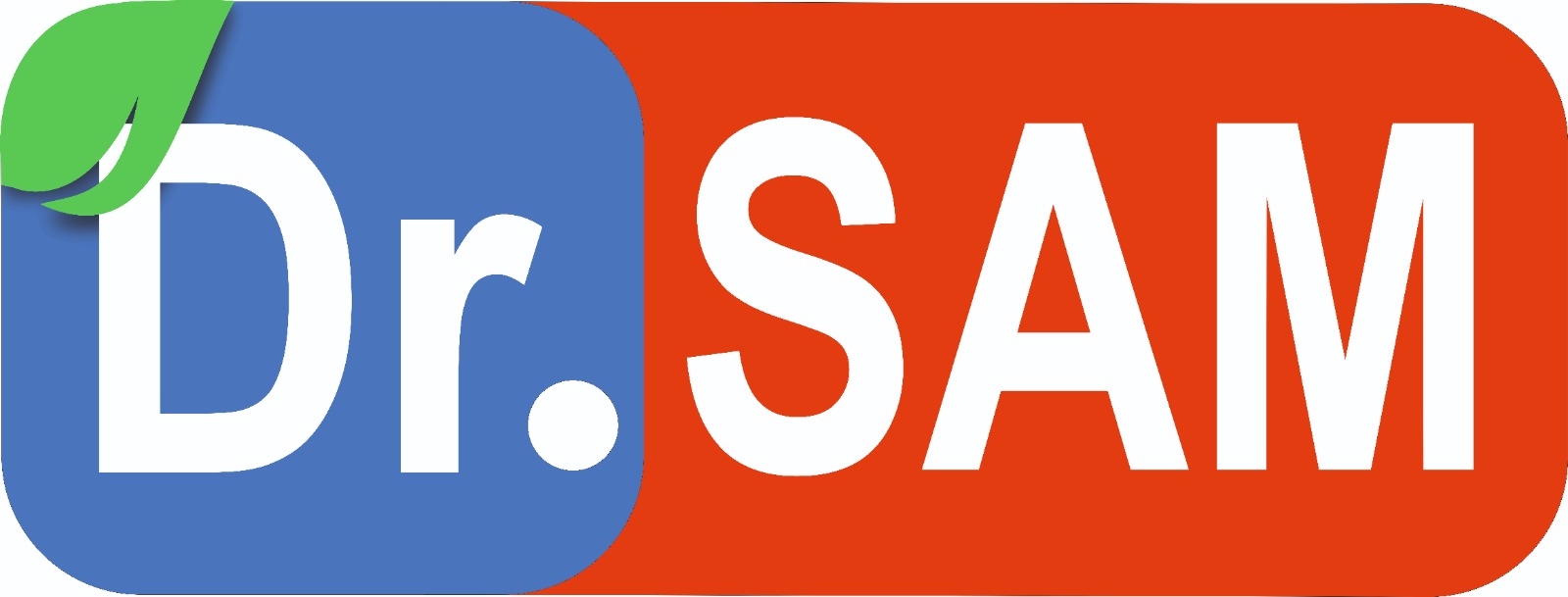Patients can consult with Dr. SAM either in-person at the clinic or through online video consultations. Dr. SAM also provides home delivery of prescribed medications to patients across India and internationally. Additionally, Dr. SAM has a dedicated research team focused on gaining a deeper understanding of chronic diseases and their natural remedies, developing comprehensive clinical standards, alongside establishing a standardized approach for case assessment,observation and prescription.
Dr. SAM offers effective homeopathic treatments for a wide range of acute and chronic conditions covering prenatal to geriatric conditions

WHAT IS HOMEOPATHY ?
Homeopathy is a gentle yet powerful system of medicine that addresses not just the symptoms but also the root cause of the illness. It offers a natural, safe, and effective treatment option for a wide range of physical, mental, and emotional conditions.The remedies used in homeopathy are derived from natural substances, ensuring they are gentle, non-toxic, and free from harmful side effects.
HISTORY OF MODERN MEDICINES
Hippocrates (460-377 BC), the Greek Physician, often referred to as the Father of Medicine, is one of history’s most renowned physicians. According to his doctrine, the body possesses an intrinsic ability to re-balance and heal itself, known as “the healing power of nature.” Hippocratic medicine emphasized gentle and compassionate treatment, focusing on the patient’s overall well-being rather than just the disease.
Hippocrates stated, “Vis MedicatrixNaturae” (Latin)
“The body contains within itself the power to re-balance and heal itself.”
ORIGIN OF HOMEOPATHY
Homeopathy was founded in the late 18th century by Dr. Samuel Hahnemann, a German physician. Disillusioned by the harsh and often ineffective medical treatments of his time, Hahnemann sought a gentler, more holistic approach to healing. In 1796, he introduced the principles of homeopathy, which were based on the idea that "like cures like"—meaning that substances that cause symptoms in healthy individuals can, in small doses, treat similar symptoms in those who are ill.
Hahnemann’s work was built upon ancient healing traditions, but he introduced a new methodology of diluting remedies and shaking them to enhance their healing properties, a process known as potentization. His pioneering ideas laid the foundation for homeopathy, which gained popularity across Europe and beyond in the 19th century.
Homeopathy is based on the belief that the body has an inherent ability to heal itself. It uses highly diluted natural substances—such as plants, minerals, and animal products—to stimulate this self-healing process. The core principles include:
- Law of Similars: A substance that causes symptoms in a healthy person can be used in diluted form to treat similar symptoms in a sick person.
- Law of Minimum Dose: The more diluted the remedy, the stronger its healing power.
- Law of Individualization: Homeopaths treat the whole person, considering physical, emotional, and mental states, rather than just the symptoms of a disease.
HOMEOPATHY IN INDIA
“The ancient Hindu physicians had, in fact recognized the "Law of Similars" as one of the principles of treatment. This principle is foundational to Homeopathy and Ayurveda, where it is stated as “VishasyaVishamAushadham,” which means “the poison is the medicine for the poison.”
Homoeopathy came to India as early as 1810 when,Dr. John Martin Honigberger disciple of Dr. Samuel Hahnemann, visited India and treated patients. In his second visit in the year 1839, he treated the then ruler of Punjab, Maharaja Ranjit Singh with Dulcamara. Maharaja was so happy with results and he encouraged him to continue the Homoeopathic treatment in India. Homoeopathy continued to spread and Indians found in its philosophy and principles, a reflection of their belief and culture.
The Government of India has established Ministry of AYUSH to promote traditional systems of medicines, including Homeopathy, by supporting research, education, and infrastructure development. The Government of India has made significant efforts to integrate Homeopathy into mainstream healthcare, enhancing its accessibility and widespread use.
WHO CAN USE HOMEOPATHY ?
Homeopathy is suitable for everyone, from the youngest to the oldest. It is particularly safe for:
- Newborn babies and children
- Pregnant and lactating women
- Individuals with chronic or recurring ailments
By choosing homeopathy, you are opting for a natural method to maintain health and enhance vitality without the risk of side effects.
KEY BENEFITS OF HOMEOPATHY
- It works on the root cause.
- Treats chronic as well as acute conditions.
- Safe and NO side-effects.
- Individualized Medicine.
- Long-lasting Relief.
- Complementary Care.
Homeopathy For All !
MODERN-DAY RELEVANCE OF HOMEOPATHY
Homeopathy continues to be widely used today, particularly for chronic conditions or stress-related ailments. It is valued for its gentle and holistic approach, especially by those seeking alternatives to conventional medicine or looking to avoid the side effects of pharmaceutical drugs.
In today’s world,homeopathy is gaining recognition for its ability to treat the root causes of illness, rather than just masking symptoms, aligning with a growing trend towards holistic and preventive healthcare. Around the world, many people opt for homeopathy because of its individualized care, natural remedies, and safe, non-toxic treatments.
Thank you for using and endorsing Homeopathy
Several eminent personalities and celebrities, both in India and abroad, have used and publicly endorsed homeopathy for its effectiveness in treating various health conditions. These personalities have contributed to the widespread acceptance and popularity of homeopathy as a natural and alternative healthcare option, both in India and globally.

